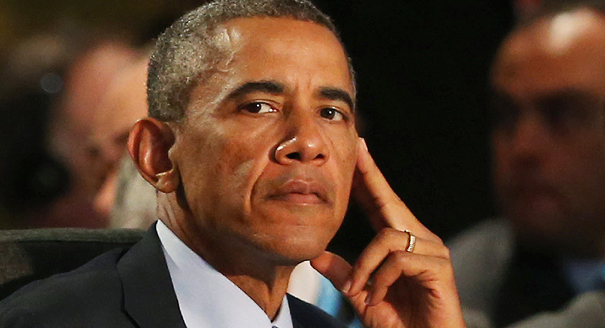Signs of the US eclipse of power and its fading supremacy can be seen in a wide range of issues from dealing with the Iran nuclear plan to its presence in the Iraqi crisis and other critical regions in the Middle East.
Presently, the Middle East can be viewed as a region wherein the US is floundering and threatening the White House with serious challenges. In other words, Washington seems to have become paralyzed in untying the self-created knots in the region.
As far as Iran’s nuclear program is concerned, the Obama administration has repeatedly shown its indecisiveness, weakness and hesitation in making its decision about an issue that all American statesmen are well aware of its peaceful nature and are sure that it constitutes no threat to the world security.
The Iran nuclear plan is considered as a technically-resolved issue and politically is in an advanced stage. However, the question why it is not definitely resolved once and for all is an issue the solution of which should be sought in the American administration and its allies in the region.
This happens in a condition that the White House is well aware that the only country that stands firmly against international terrorism in the region and practically supports countries that suffer from extremism and terrorism is the Islamic Republic of Iran. Iran’s overall attitude has proved that it plays a constructive role in the regional developments.
However, every time that the negotiations between Iran and the West, with all-out US participation, are going to reach to a conclusion, tidal waves come to surface and change the course of action.
Words opposing any agreement between Iran and the West can be constantly heard in Tel Aviv and certain capitals in the region and currently a resilient voice in Washington has joined them while the White House seems not to have the necessary clout to firmly stand against forces supporting the status quo.
Undoubtedly, solving the nuclear issue between Iran and the West will have a double effect on confrontation against terrorism, but it seems that the trends that foment terrorism in the region will continue to resist. The analysts who support such argument believe that the Iran nuclear dossier shows the weakness of the American administration in adopting crucial and fateful decisions.
The most obvious sign of the American weakness in confronting regional crises could be seen, more than anything else, in their hesitation towards the realities in the region, in Syria and Iraq in particular.
Virtually four years have passed since the Syrian crisis began and almost everything behind the scene has been revealed now, but the Americans are still confused and hesitating.
The issue is not very much complicated. The US could start talks with the Assad government, convince its allies to stop supporting terrorist groups so that the real Syrian opposition starts negotiations with the government, and subsequently avoid leaving the Syrian political and security scene to the terrorist groups.
The US could also convince the countries that let the terrorists from all over the world cross into Syria and Iraq to close their borders. Furthermore, Washington could ask them to stop trading oil with ISIS so as to block their source of income.
All these are signs of the subsiding of the American influence in the region and its regional allies. The Israeli provocations amid the war against terrorism in Syria and Iraq and instigation of distracting conflicts by other regional allies are not hidden issues.
In addition to all these, the US administration seems to be entangled in Iraq where there are indications of the existence of forces that are not in harmony with the White House policies. It seems that Washington is not aware of certain US military actions taking place in Iraq. Anti-ISIS forces in Iraq are increasingly raising their voices against the US military support of the terrorist group. The US authorities deny such developments in conditions that plenty of authentic documents exist and the issue has been found its way to the Iraqi parliament.
It might be possible to believe in the US denials but the question is if Washington has nothing to do with the issue or the US authorities are not aware of it, why don’t they become curious about it or show some reaction?
However, it is undeniable that certain currents in the US have accepted the realities in the region such as Iran’s decisive and positive role in the regional peace and tranquility, the negative role played by Israel and other US allies in the region, the realities about Syria, Iraq, Yemen and other countries as well as the legitimacy of the resistance forces in the region.
Having such facts in mind, it seems that the first and foremost victim of the existing quagmire in the Middle East would be the US administration. To pull itself out of the self-created dilemma, the US needs to take grave decisions under the status quo. It has to clarify what it intends to do with the strings that have entangled it; the strings that can pull it down to the verge of crumbling.
MH**1377

Baghdad, March 3, IRNA – We are no longer witnessing the US that used to set plans for its stooge governments across the Atlantic or to threaten independent states. Rather, some analysts believe, all signs of the decline of its supremacy throughout the world and the Middle East have emerged.

